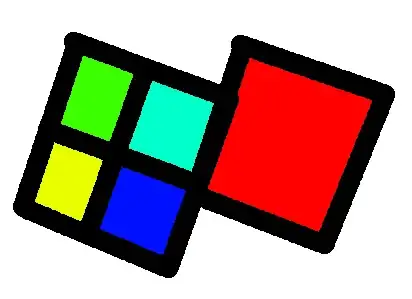This is probably just a misunderstanding on my part, but everything I've seen on what quantum computers do thus far seems to suggest that the actual process of reading the entangled qubits would be equivalent to reading the value of a plate opposing a subdivided plate in a plate capacitor while the setting of initial qubits would be the equivalent of assigning a voltage to each subdivided plate. E.g. in this image:
You would be able to read the voltage on the red plate after setting independent voltages from a known range representing 0 at the low and 1 at the high on the 4 separate subdivisions of the opposing plate, then rounding off at some particular voltage to get a zero or one out of it for those 4 bits.
Is this wrong? If so, how does it differ from actual quantum computing?
